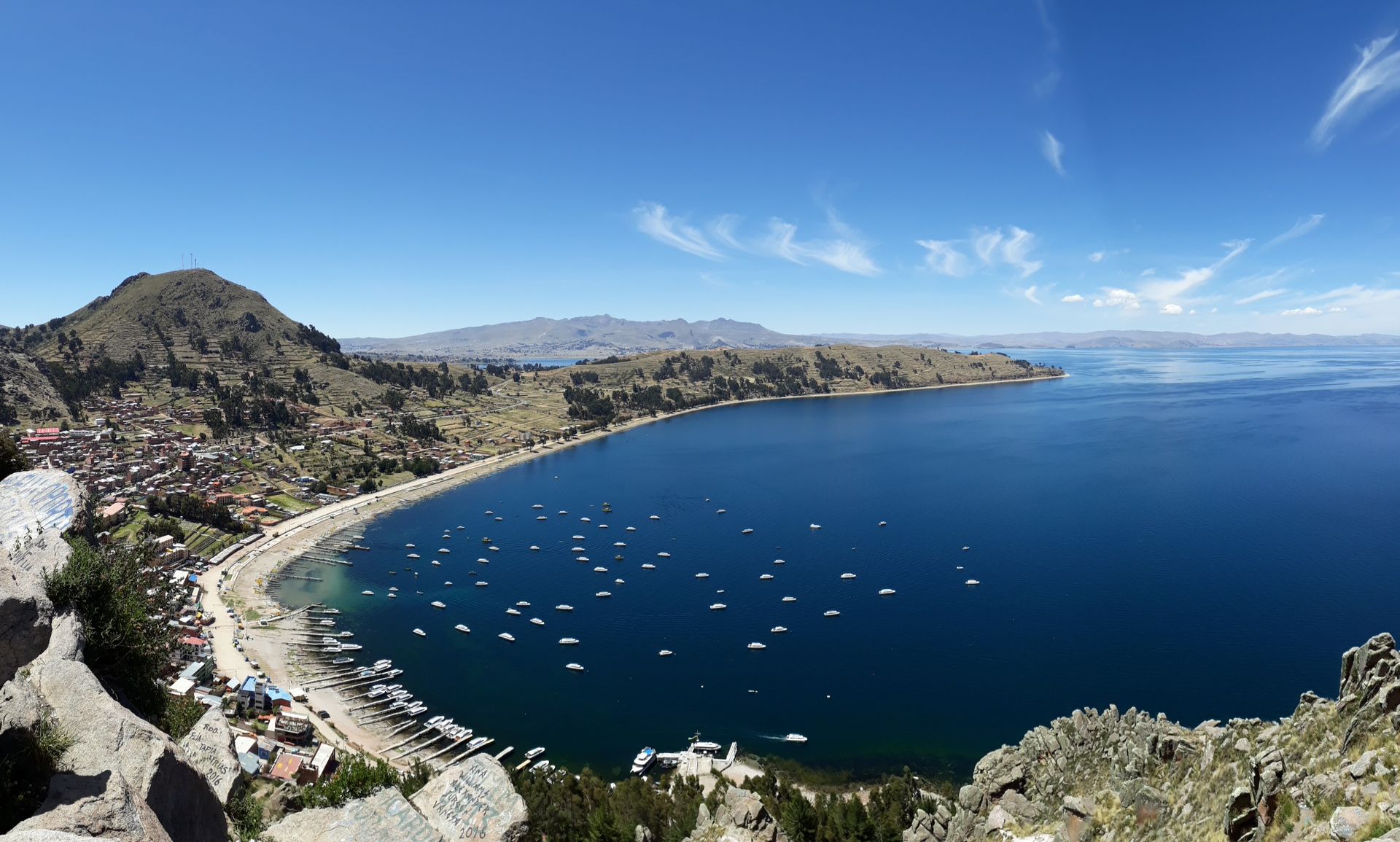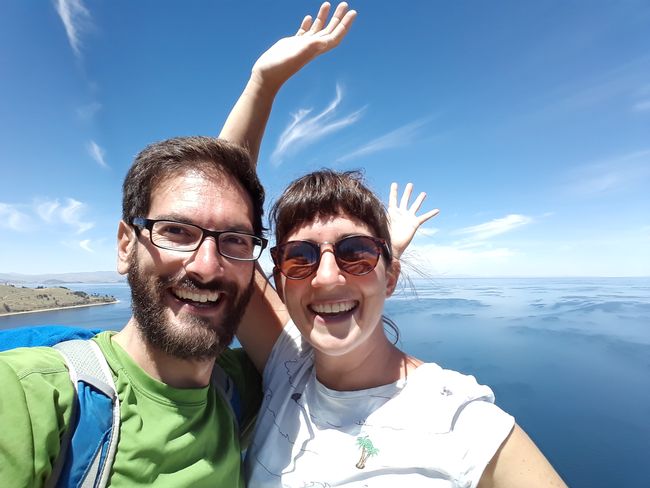Guatemala - Tikal and/or Semuc Champey
Paskelbta: 12.06.2017
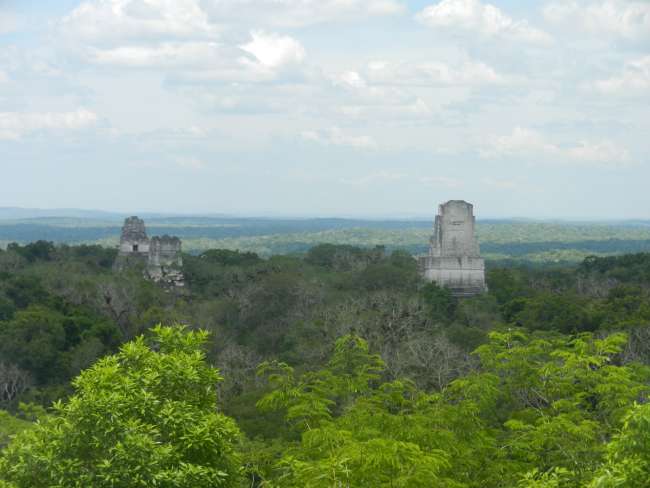
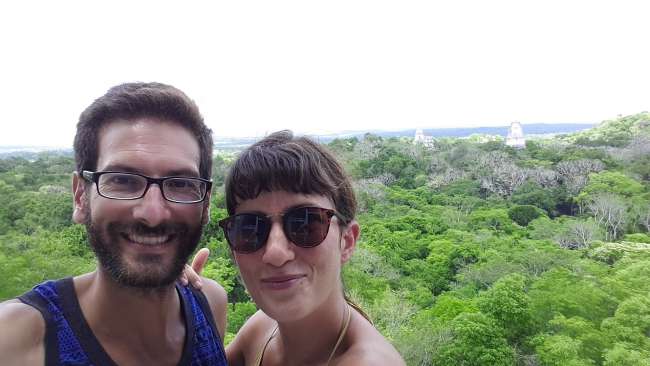
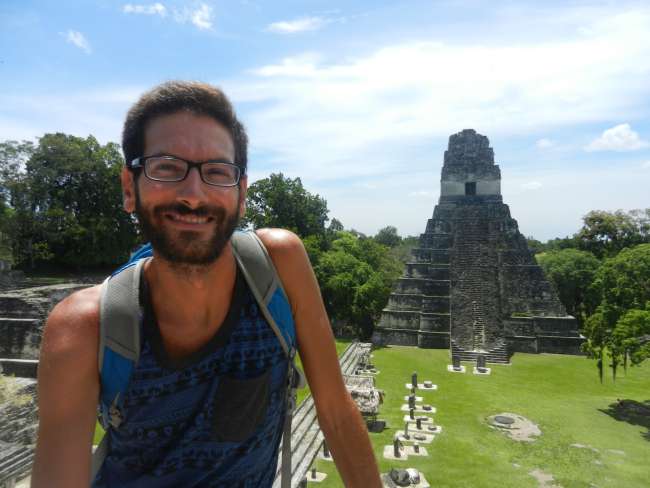
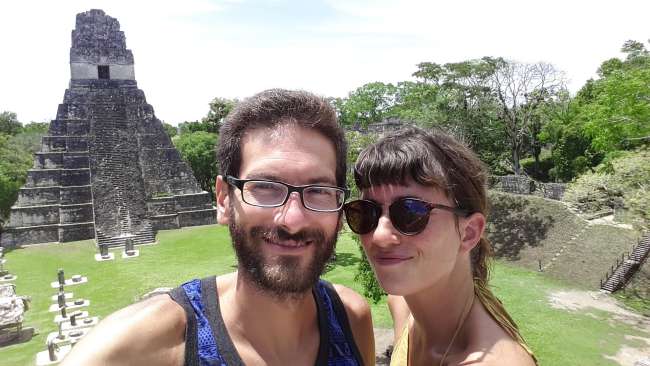
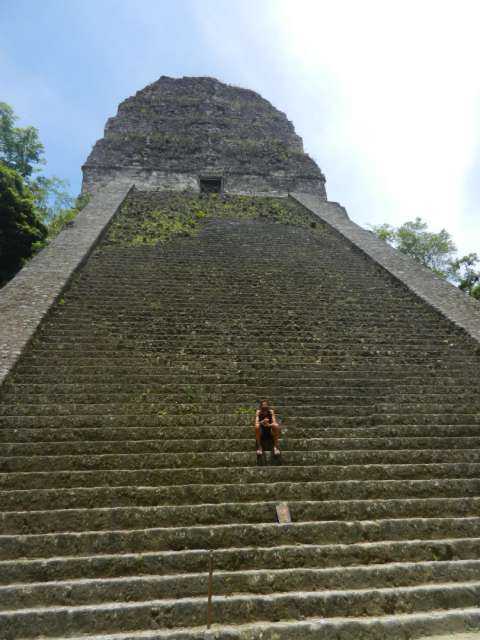
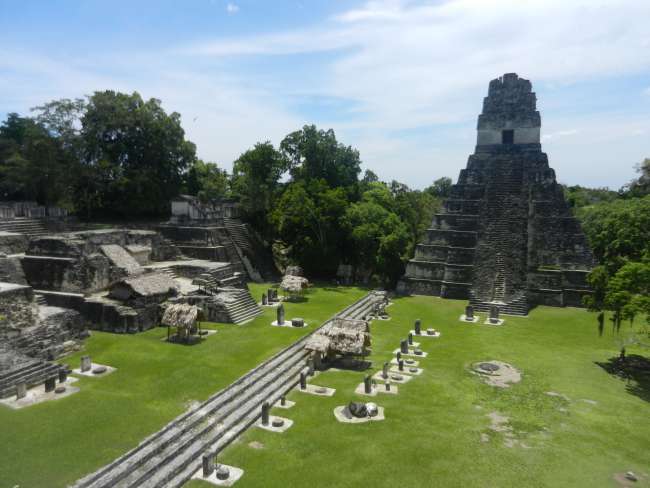
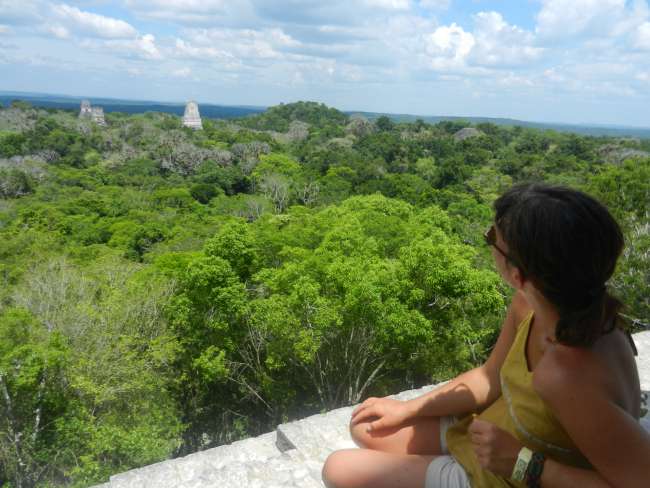
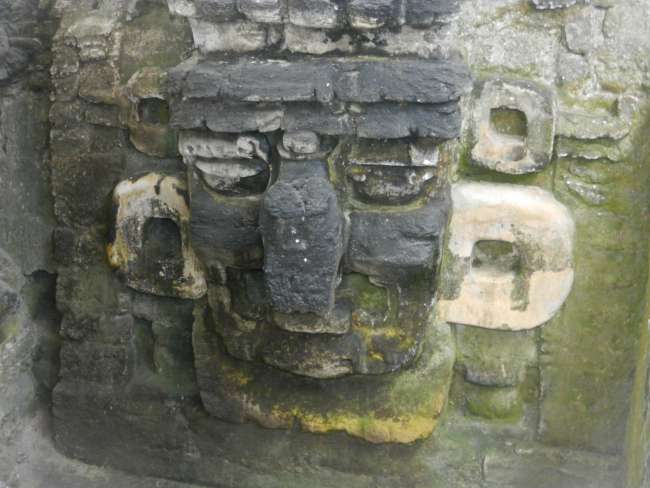
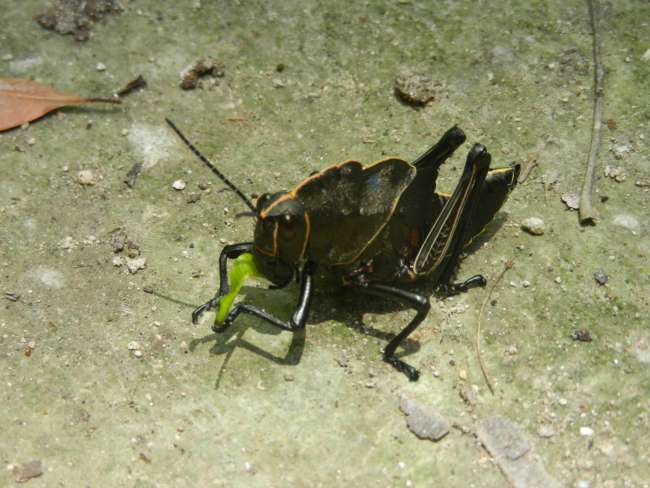
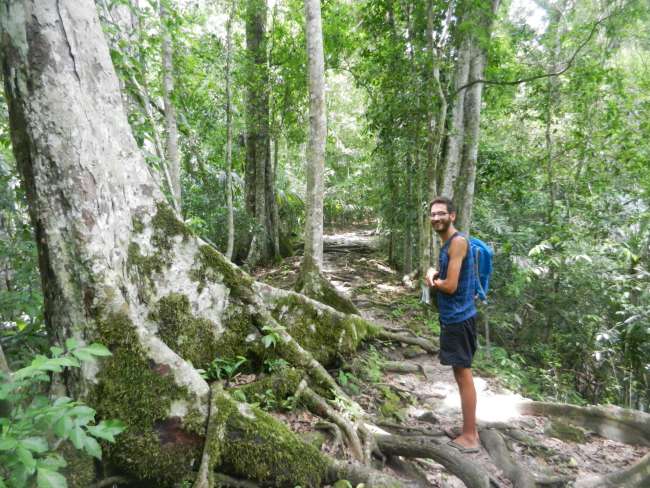
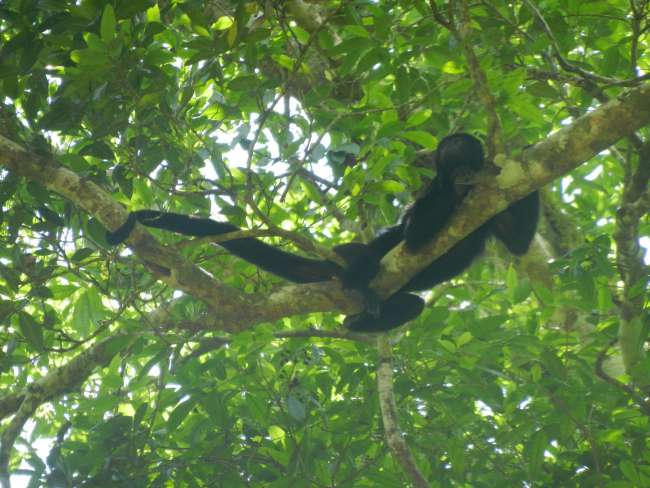
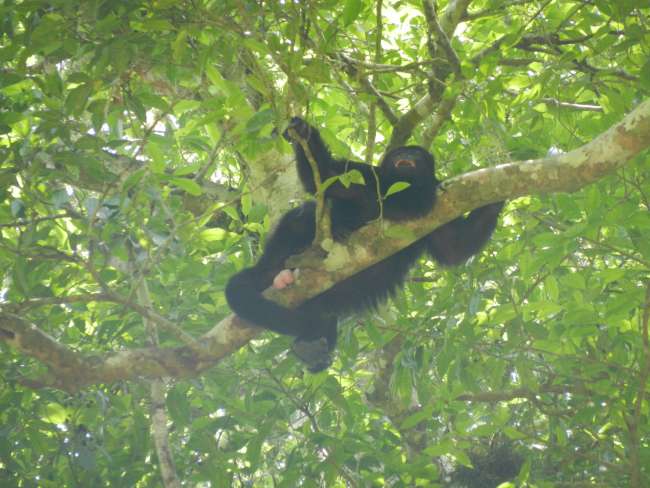
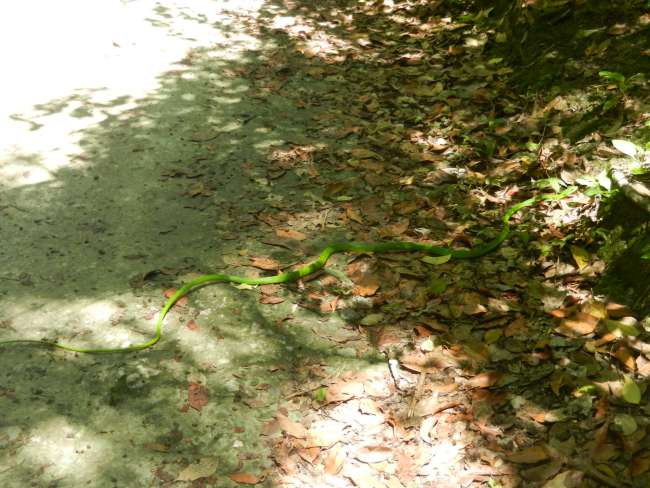
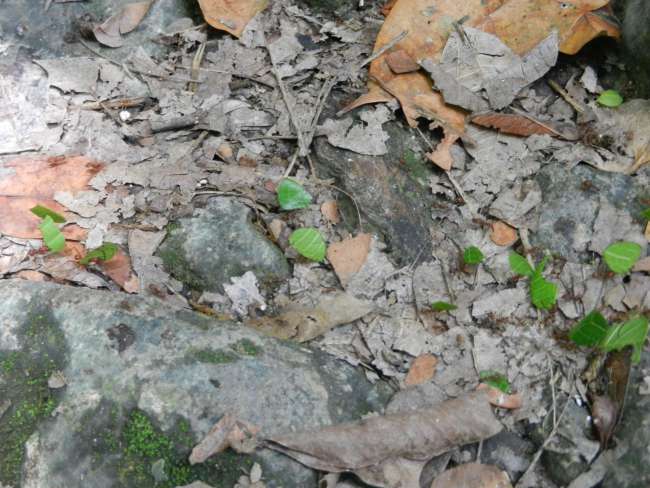
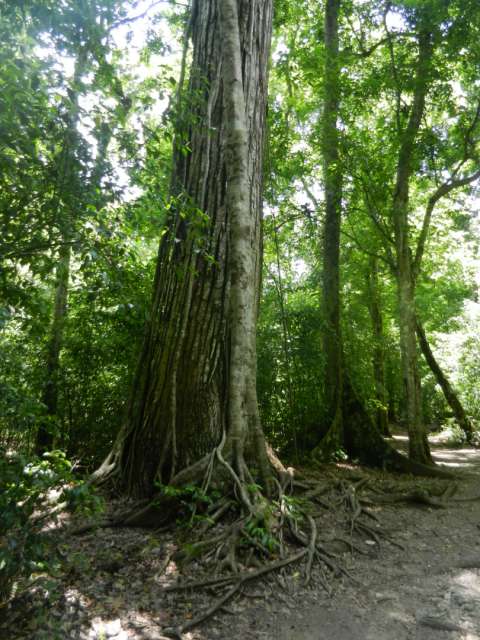
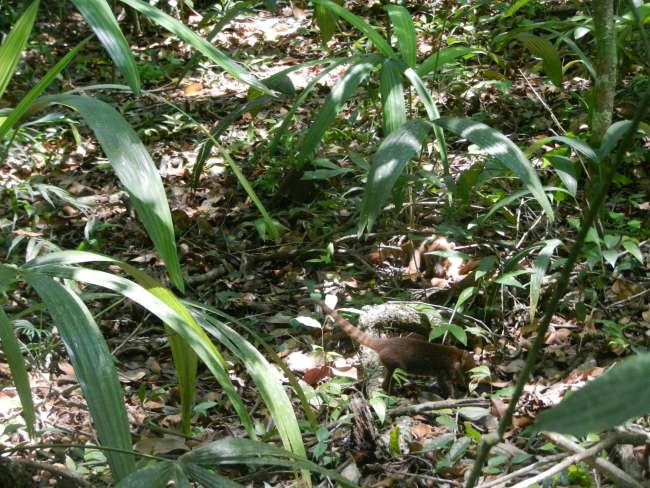
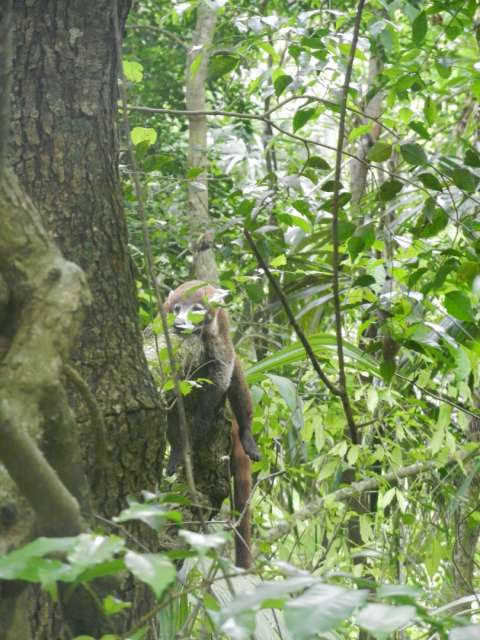
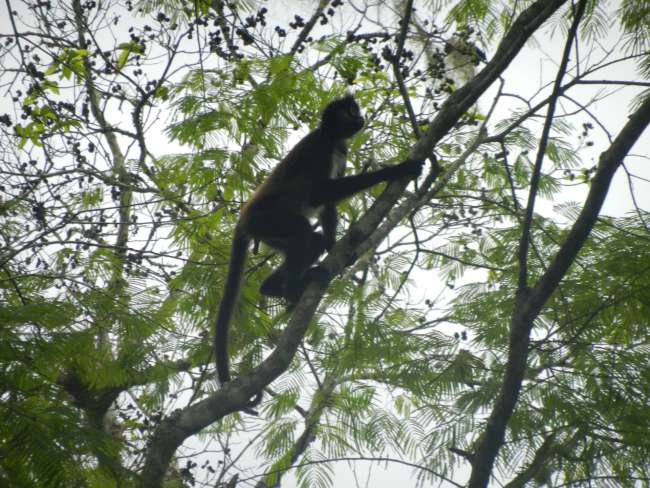
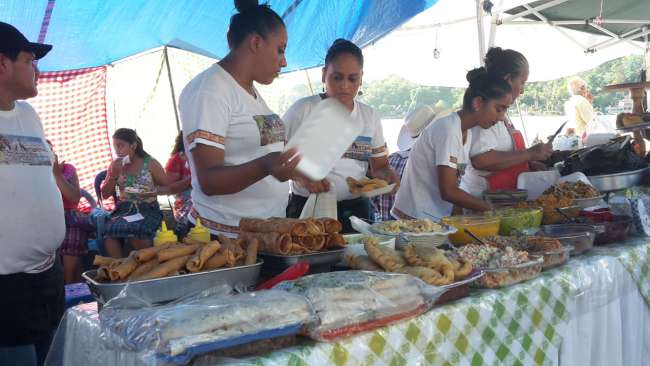
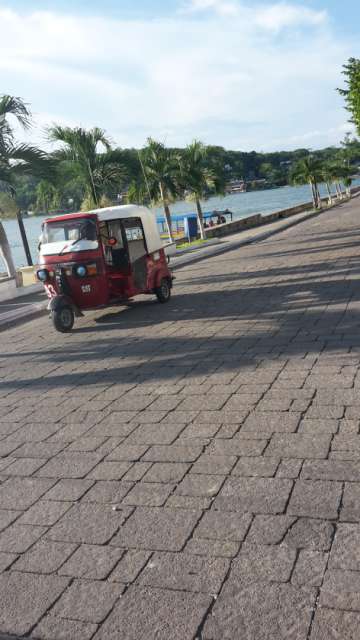
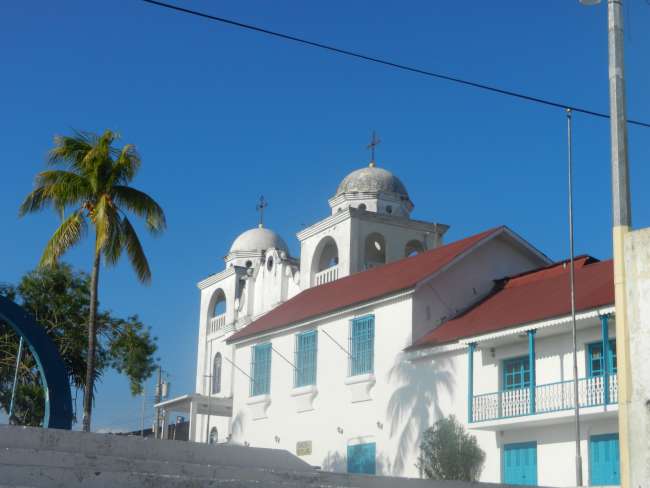
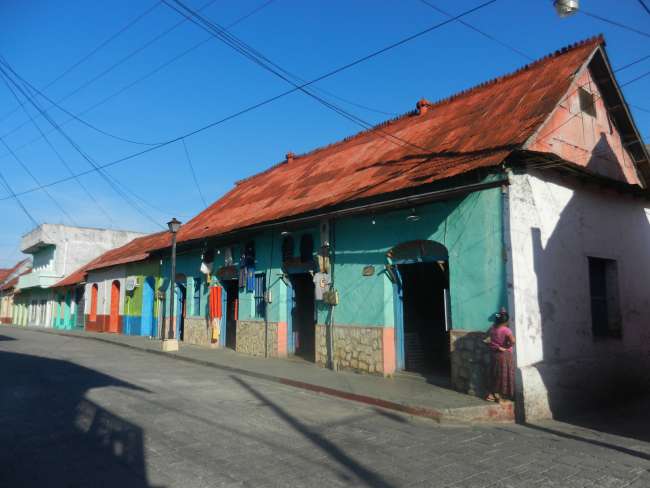
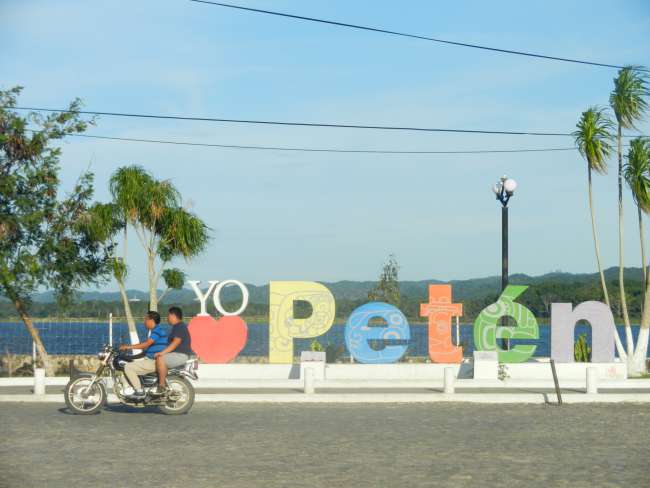
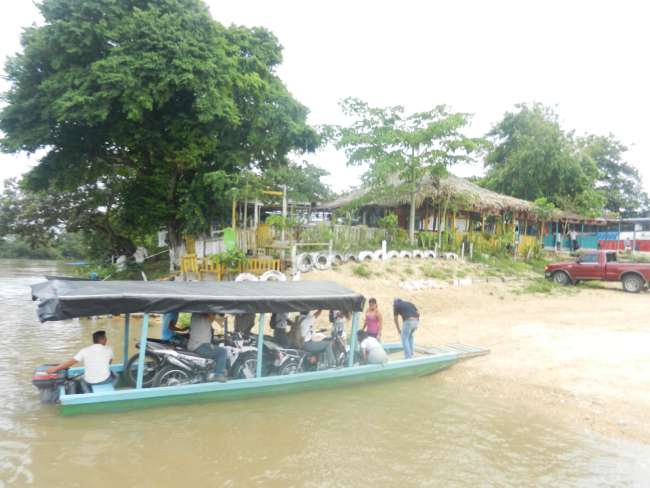
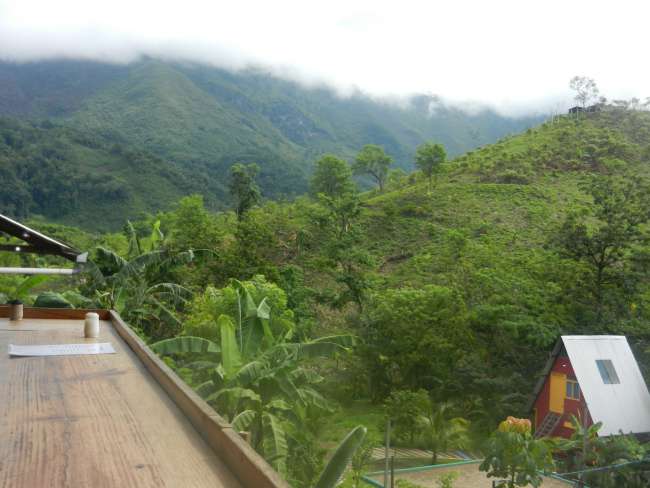
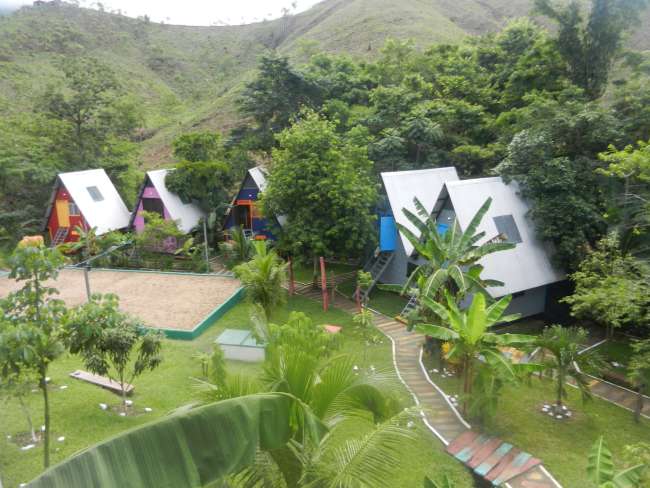
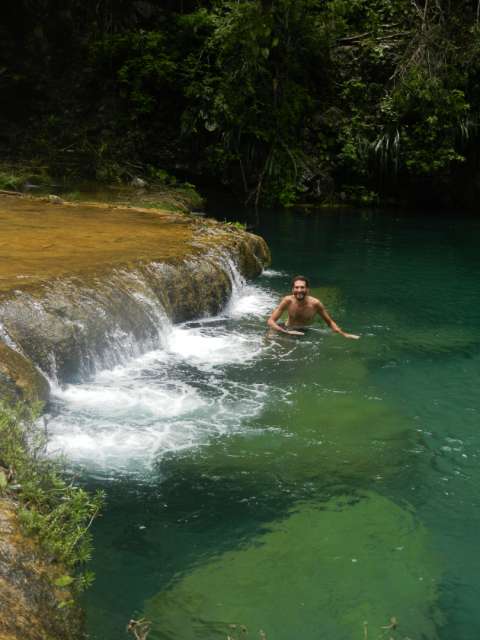
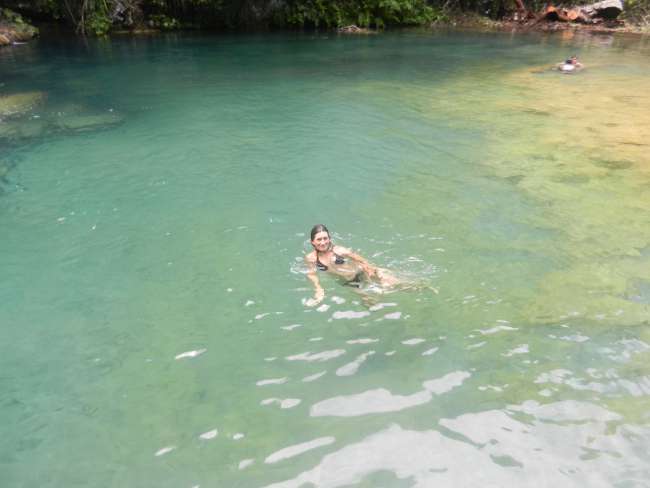
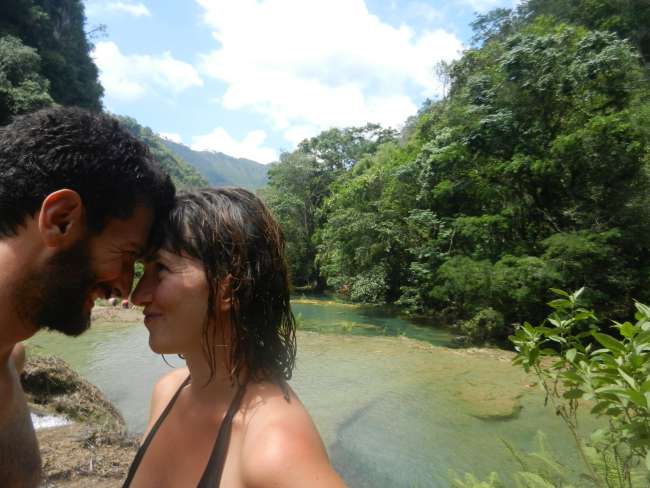
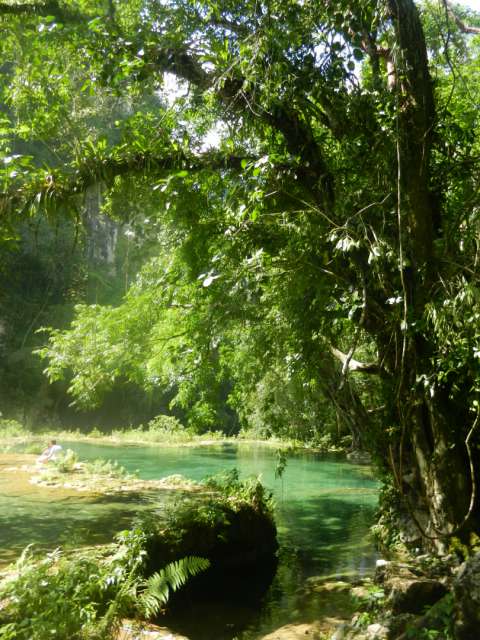
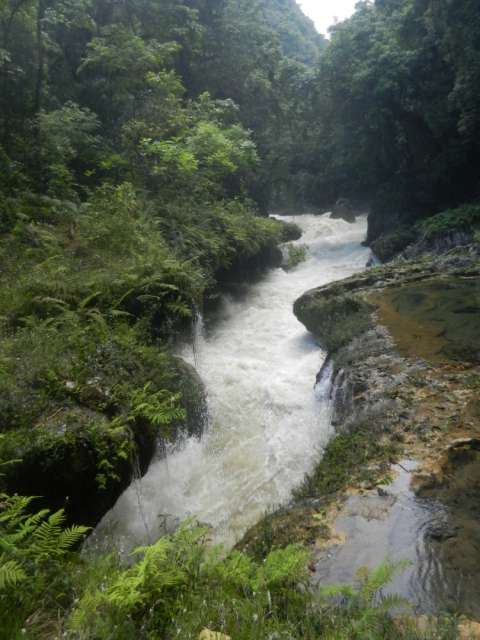
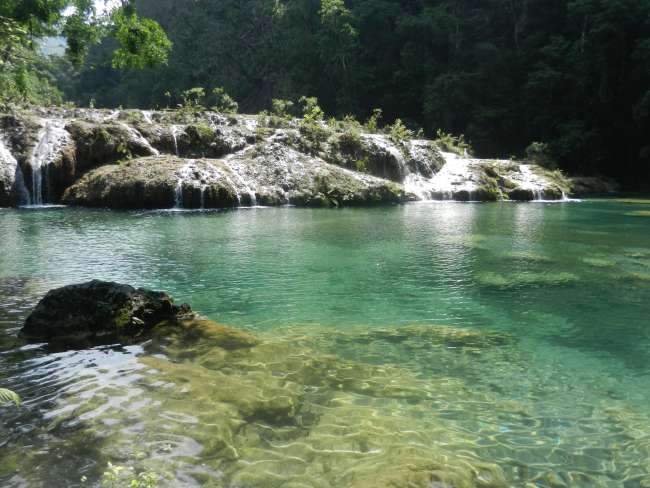
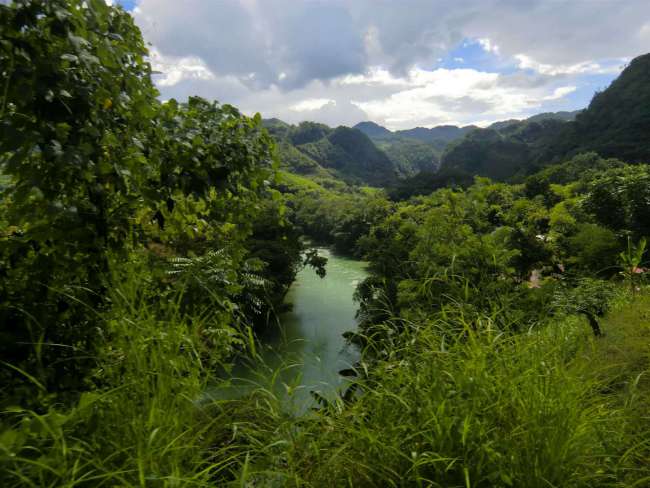
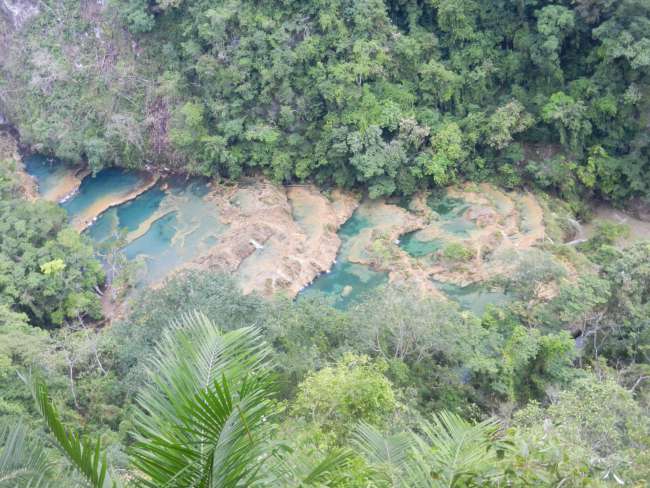
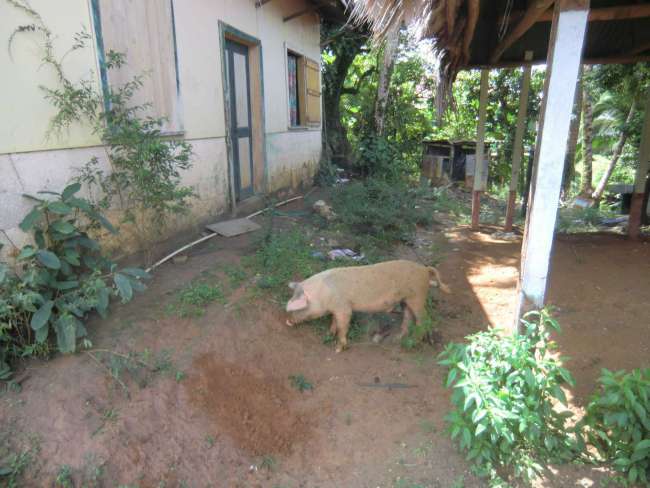
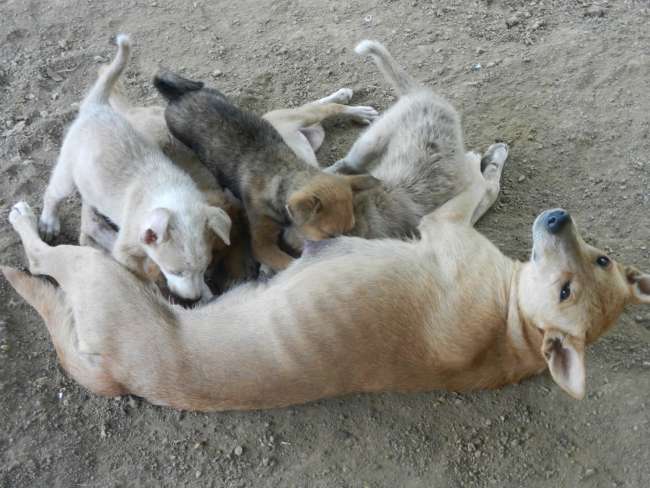
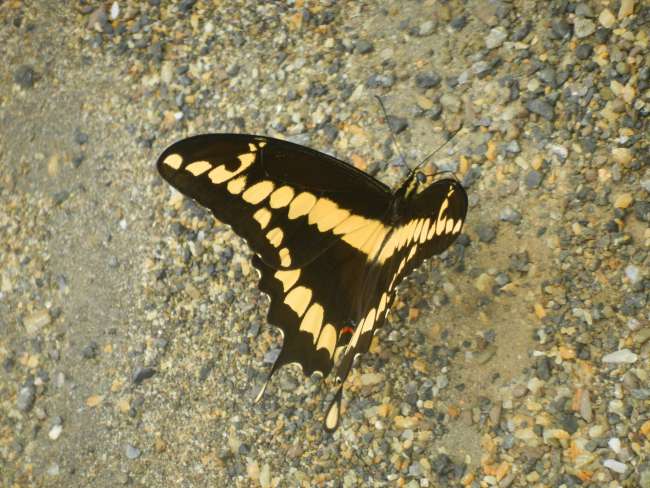
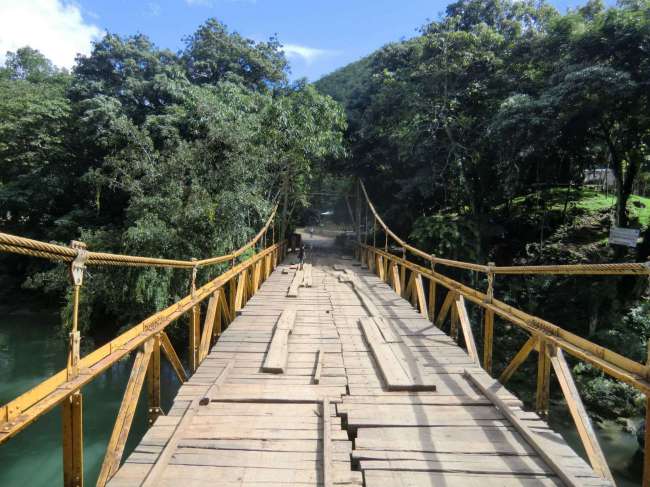
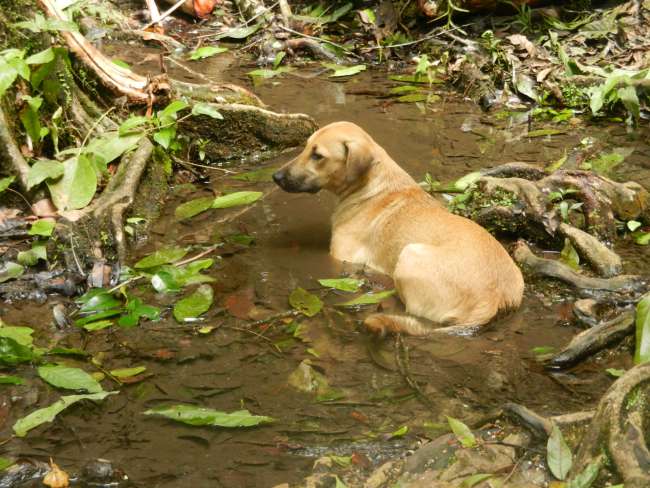
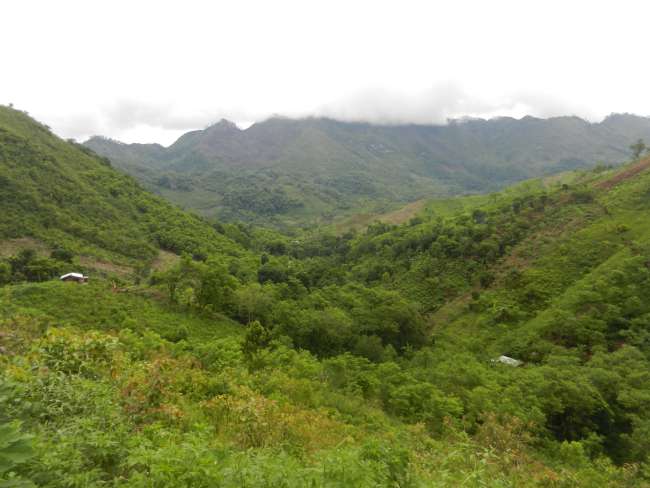
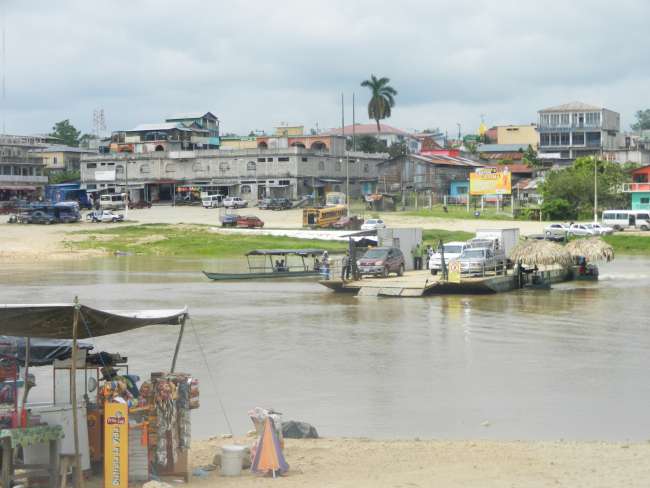
Prenumeruoti naujienas
From Belize City, a bus takes us directly to Flores, Guatemala. This time, the border crossing is taking a long time...somehow, these places are just unpleasant and you're glad when you can finally continue. Flores is probably not a representative Guatemalan city, it is the gateway to Tikal, the largest and most important Mayan city, and therefore well-developed and safe for tourists. The island city is located on Lake Peten, it is beautiful and affordable. A dinner for two people with everything costs about 2 to 3 euros on the street. Culinary, Guatemala and Mexico are very similar, lots of corn, beans, meat, and little vegetables. At first, it was okay, but slowly we have the vague feeling that the next few months could be culinary demanding and monotonous 🙁 lots of carbohydrates, lots of fat... we miss fresh vegetables! At least there is good fruit on every corner!
The journey to Tikal offers exciting insights into the lives of the indigenous population in Guatemala, which takes place mainly on the road. Free-roaming chickens and pigs everywhere, emaciated dogs (which I would like to feed all), simple wooden huts, women in traditional clothing, colorful fruit stands, and lots of children! The people lead a simple life, work a lot in the fields, have their hut and their motorcycle, where they can fit the whole extended family or their pickup truck, where the whole clan can fit on the loading area 😉
Tikal is located in a national park in the middle of the jungle and is absolutely impressive! It is not only the largest Mayan city that has been found so far, but also the most extensively researched. Many ruins are still buried under the jungle, but some of the major ones have already been uncovered. You can climb one of the high ones and enjoy the view. It is a magical place, for me a highlight in terms of history and culture. Palenque and Teotihuacan in Mexico were also very worth seeing, but Tikal is outstanding. You can imagine it as a jungle hike where you constantly come across various impressive buildings seemingly by chance. The place is very peaceful, no annoying vendors like in the other ruined cities, you can fully enjoy everything in peace. In addition, there are some animals that live here: we encounter many lizards, a bright green snake, numerous howler monkeys, who roar loudly through the jungle, some spider monkeys, and lots of coatis!
What stands out to us negatively are the price differences that are made between locals and foreigners in places like Tikal and basically everywhere. In Tikal, locals pay about 3 euros and foreigners pay six times as much! In Mexico, the same was true in the ruined cities and also in the museum, only the difference was slightly smaller. Of course, we know that we have more money than the people who live here... but still, it goes against the principle of equality, doesn't it? Also, not all foreigners are automatically from much wealthier countries, Mexicans or Colombians also have to pay the higher foreigner price. Just imagine for a moment if we did the same thing in Germany... what would happen then!
The bus ride from Flores to our next destination, Semuc Champey, is long and bumpy. It was announced to be 6-7 hours, but in the end, it took more than 12!!! Frustrating when you think you should have arrived long ago! The roads in Guatemala are, well, in need of improvement. It is hilly and curvy, that can't be changed 😉 But the roads are partially in a terrible condition and on top of that, in Mexico, Belize, and Guatemala, they practically worship speed bumps and the drivers suddenly brake sharply again and again, very often several times in a row. Overall, not a great pleasure. Only gallows humor helps 🙄
The last 25-30 km are muddy dirt roads and for the last 10 km, we ride on the back of a pickup truck from the jungle town of Lanquin to our jungle hostel. It takes about an hour for the 10 km. The area is completely inhabited by indigenous people and every woman wears traditional clothing. The area is poor, people work hard, again simple wooden huts, many animals (here we feed a neglected dog mom and her 5 puppies daily, who live next to our hostel), colorful laundry everywhere, which probably never dries properly in this climate, women transporting all sorts of things on their heads, and men carrying sacks of corn and firewood for kilometers on their shoulders. But our impression from the area of Flores confirms itself, a large majority of the people seem very satisfied. There is much laughter, the people are often cheerful, and even we travelers with our monstrous backpacks are usually greeted with joy and warmly-curious scrutiny. Fascinatingly modest people. Many speak Spanish only brokenly, the mother tongue here is the Mayan language Quiche.
Back to Semuc Champey: this is a national park where a river flows underground through a cave and above the river, natural swimming pools have formed in rocks. Great to see and even better for swimming! The water is refreshingly cool, just right for the heat! Here, you really notice that it is the rainy season. The day usually starts sunny and humid, and in the afternoon, the clouds get darker and heavy tropical thunderstorms pour down over the jungle. A spectacle.
Our hostel is within walking distance of the national park and very pretty. Unfortunately, there is no kitchen and no other dining options nearby, so you are forced to eat what is offered in the hostel at overpriced prices. Since the owner is from Israel, we expand our menu with hummus, a welcome change 😊
From Belize City, we take a bus that takes us directly to Flores, Guatemala. This time, the border crossing takes a little longer... these types of places are always a bit uncomfortable, so you are glad when you have passed them. Flores is not a very representative city of the way of life of the people in Guatemala since it is very touristy as it is the gateway to the Mayan ruins of Tikal, the largest and most important ruins of this culture. The center of Flores is located on an island within Lake Peten, and it is quite cheap. For example, eating or having dinner on the street can cost you around 2 or 3 euros for two people. From a culinary point of view, Guatemala and Mexico are quite similar, they use a lot of corn, beans, meat, and little vegetables. At the beginning of our trip through Central America, it was fine and we didn't mind too much, but after a month or so here, we always feel like eating fresh things and not so many carbohydrates and fat. Fortunately, there is good fruit on every street corner.
The road to Tikal offers some views of the lives of the indigenous people in Guatemala since many of them have their homes, many of them simply made of wood, right next to the road. There are chickens and pigs wandering freely everywhere, and many dogs roaming around. Most women, young and old, wear their traditional clothes, baskets to sell their products, and always with their children. It seems like they lead a simple life, with hard work in the field since agriculture is not mechanized around here and it seems that they do all the work with their machete.
Tikal is located in a national park in the middle of the jungle and it is impressive! It is not only the largest Mayan city that has been found so far but it has also been the most extensively researched. There are still many ruins to be discovered since the city occupied an area of about 62 km2. The scenery where it is located is very beautiful and from one of the temples, you can see the immensity of the jungle that surrounds you at that moment. In comparison to the ruins of Palenque or Teotihuacan in Mexico, it is very peaceful, without any vendors bothering you and much fewer people. In addition, among the ruins, you can enjoy animals such as snakes, howler monkeys, spider monkeys, and coatis.
The most negative aspect of the ruins has been their price since there is always a difference made between the people from Guatemala and foreigners, and the price is multiplied by 6. In Tikal, the locals pay 3 euros, and foreigners pay 18, an armed robbery, but well, that's how it is. They must imagine that all foreigners are rich.
The bus from Flores to our next destination, Semuc Champey, is long and slow. When we bought the ticket, they told us it would take about 6 or 7 hours, and it took more than 12 to get there!! Some roads around here are in quite bad condition with potholes and unpaved sections, and when you pass through towns, there are speed bumps every 100 meters where the driver practically has to stop. The last 20-30 km were on unpaved roads, and in Lanquin, the last 10 km, we had to get off the bus and take some pickups to get to the hostel. Around the hostel, you can see quite a bit of poverty. It seems that most of the people here are peasants with not too many resources. It gives the impression that a few can afford to have their own car/motorcycle or a cement house. In addition, everyone here speaks Quiche as their mother tongue, and it is clear that many do not master Spanish very well.
Semuc Champey is a national park, the most famous part of which are some natural pools that have formed above a river. Semuc Champey means "where the river hides." Millions of years ago, some rocks fell from the mountain onto the river, forming a bridge over it. Over time, the water has eroded these limestone rocks to form these beautiful pools. At the ends of the pools, you can see how the river goes in and out below the rocks with impressive force. In addition, there are these little fish in the pools that eat dead skin. Many people find it pleasant, but it made me quite uncomfortable to feel that 20 fish were eating my toes.
The hostel is located in the middle of the national park and it is very beautiful. But unfortunately, they do not allow outside food and you can only eat what they cook, so we spent more money than expected. There were no other nearby places to eat either. The good thing is that the owner of the hostel is from Israel and there was a pretty good hummus, which we were very happy about.
Prenumeruoti naujienas
Atsakymas (4)
Rallye
einfach nur sprachlos. kinnlade unten. wir können nur temperaturtechnisch mithalten. 30grad aufwärts.Nini
Ui, neue hitzewelle?sony
si, bastante duro ;-)Nini
😆😙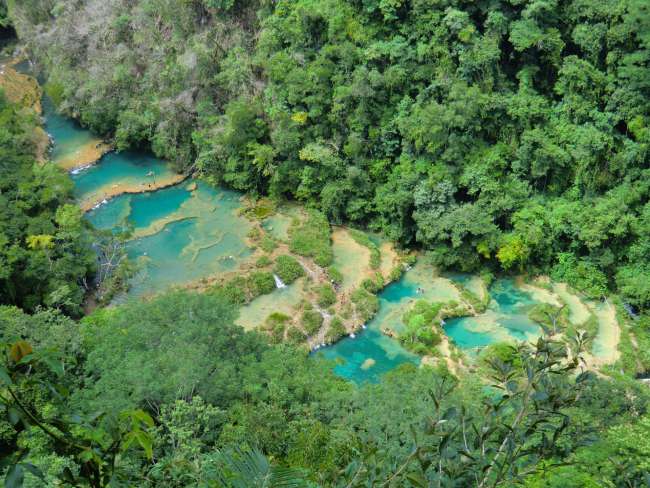
Gvatemala kelionių ataskaitos
